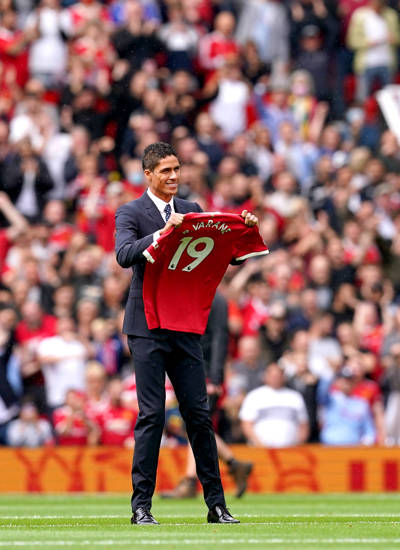
Our guests’ opinions do not necessarily reflect the position of FIFPRO
Financial instability is no stranger to football. Poor governance, reckless management, volatile revenues, weak labour laws: the causes are many. The pandemic has brought further strain, shutting stadiums, cutting revenues, and widening the gap between the wealthiest clubs and the rest. Don’t be fooled by this summer’s transfer window: behind the familiar headlines about the best-known stars, thousands of players face an uncertain future.

About
Nick De Marco Q.C.
Senior lawyer and a member of Blackstone Chambers
Nick has advised and acted for a number of sports governing bodies, football clubs and players in commercial and regulatory disputes. He has demonstrated particular expertise in financial regulation in football, including acting for the PFA in their recent successful challenge to the English Football League’s attempted imposition of salary cap rules.
The time for reform is now. The question is: what are the most urgent priorities, and how do the various actors play a part? One thing is clear: everyone has an interest in financial stability, starting with the players whose careers, short and uncertain, depend on the growth of the game. And the fans of course, whose clubs’ very existence can be threatened by debt. But just as the causes of disruption are many and varied, so the political landscape is complex. Any serious reform must deliver a common set of rules to a globalised sport, while respecting the economic and social regimes that vary enormously from one country to the next – even across the European Union.
This complexity explains why a salary cap would do more harm than good. In the rush to act fast, the appeal of a quick and easy fix carries enormous risk. Just ask the third and fourth tiers of the English Football League, who this year were forced to abandon a new salary cap in the middle of the season. The players and their union, the Professional Footballers Association, were never consulted on the League’s plan, and when they rightfully challenged it before an independent tribunal, the cap was abandoned mid-season. The League has refused to publish the tribunal’s findings, but the lesson for others is clear: even if they come with the best intentions, top-down diktats never work.
But this was not only a failure of governance; the idea itself was misguided. By setting the cap at the lowest level in each division, the League prohibited those clubs who could safely afford to spend more on salaries while operating within their means. This dragged wages down, limited competition between clubs, and widened the gap between League One and the Championship, which was not covered by the cap. The failed experiment points to a deeper problem.

If the goal is to increase financial stability, it is unclear how a salary cap achieves it. Every club’s balance sheet is a complex picture of revenue, costs, investment and debt; every owner pursues different priorities and commercial strategies; and every club plays in a particular country with its own economic conditions. Raise this to the international level, and we confront a dizzying diversity of national labour laws, tax regimes and accounting standards. How would any cap be monitored and enforced across different countries?
In such a fragmented landscape, players’ salaries are only part of the story. To put the burden of reform on their shoulders, when an entire industry is under enormous strain, would be wrong-headed and unfair.
The questions don’t stop there. In football’s open competitions, where everyone has a chance of promotion, how would clubs under lower caps attract new talent from higher up? What would happen when a club achieved promotion: could they confidently offer contracts to players in their new division, when the effort to avoid relegation is fraught with uncertainty? Most probably, a salary cap would only widen the gap between different leagues, entrenching any dominance that already exists.
“A salary cap would allow the wealthiest clubs to pay even higher transfer fees”
— by Nick De Marco Q.C.
And then, how would we reconcile a cap with the transfer system? Whatever one’s views on the current regime, it’s the transfer system that allows clubs to compete for talent. A salary cap would allow the wealthiest clubs to pay even higher transfer fees, securing their grip on the best players – while the players themselves lose their freedom to negotiate. It’s as much a moral problem as an economic matter.
None of these problems exist in closed leagues, such as those in the United States, where salary caps belong to an entirely different culture – one in which players’ unions negotiate directly with their employers, agreeing collectively the salary and other working conditions. We should not be surprised, then, if this year’s farcical dash for a European Super League included plans for a salary cap: this was to be a closed league serving the financial interests of a limited number of clubs. Further proof, if needed, that a salary cap is not what football needs.


